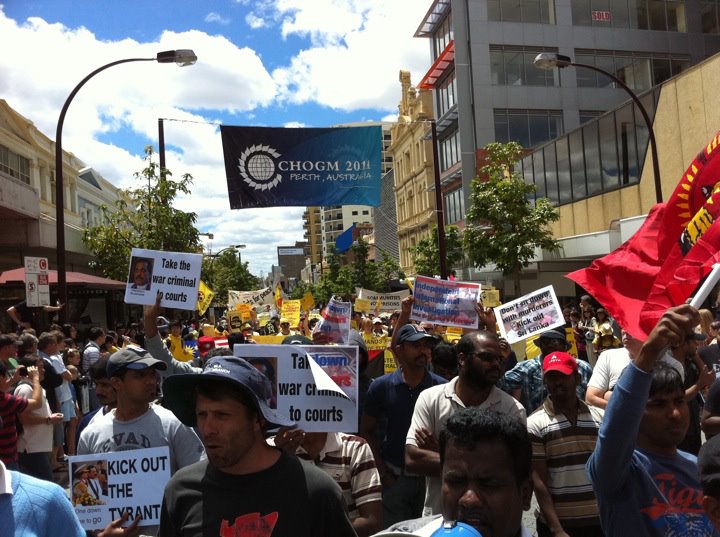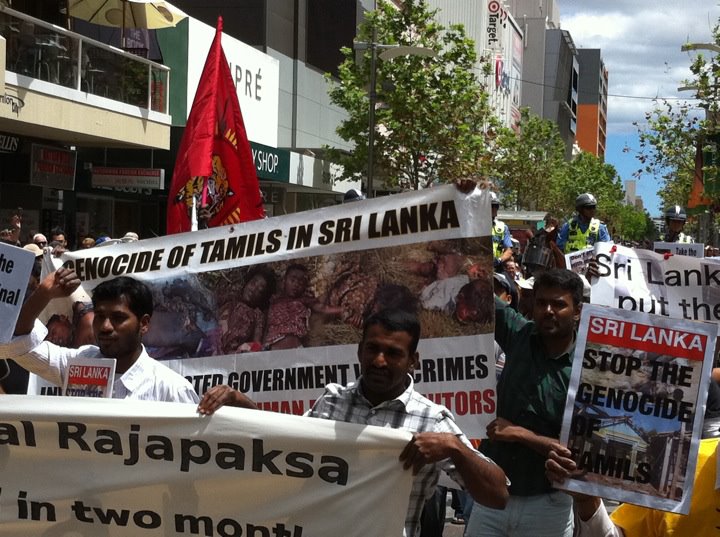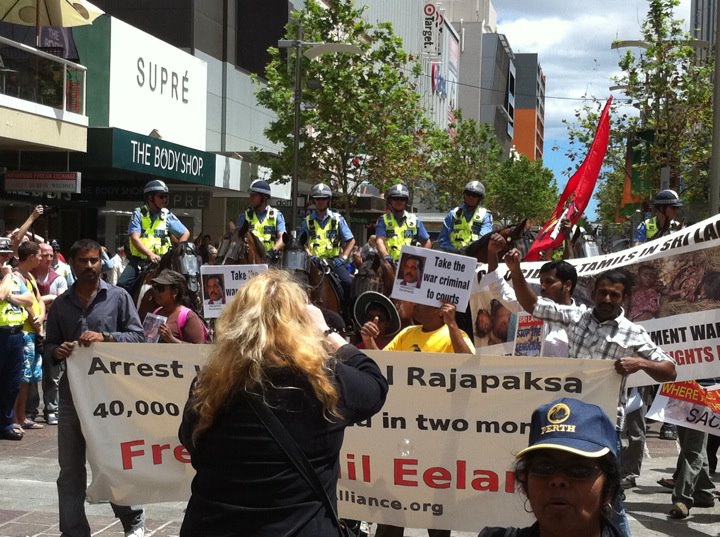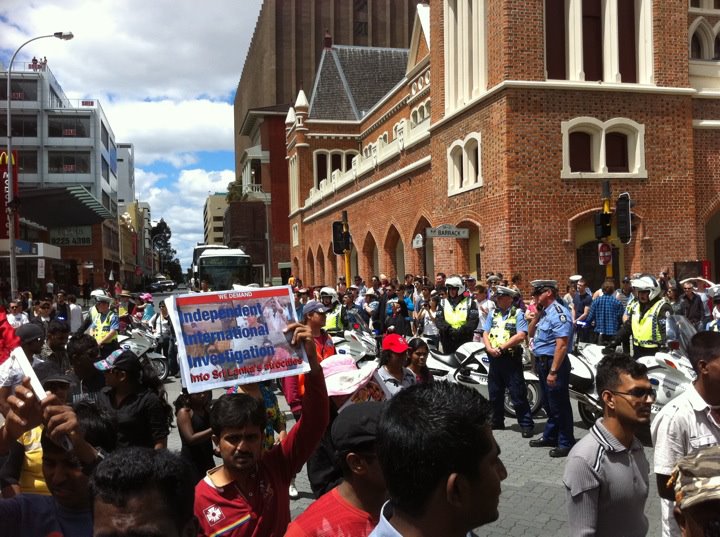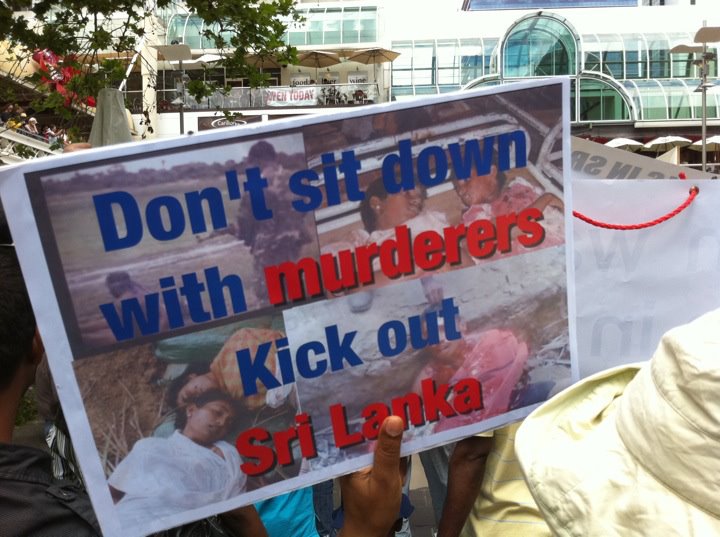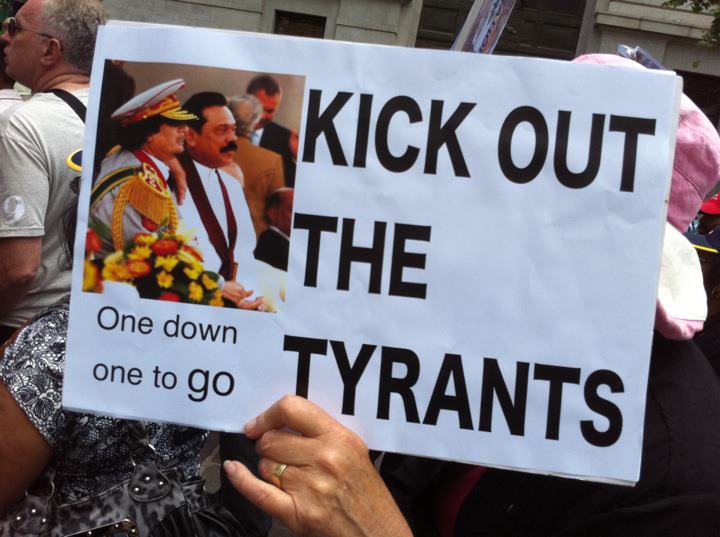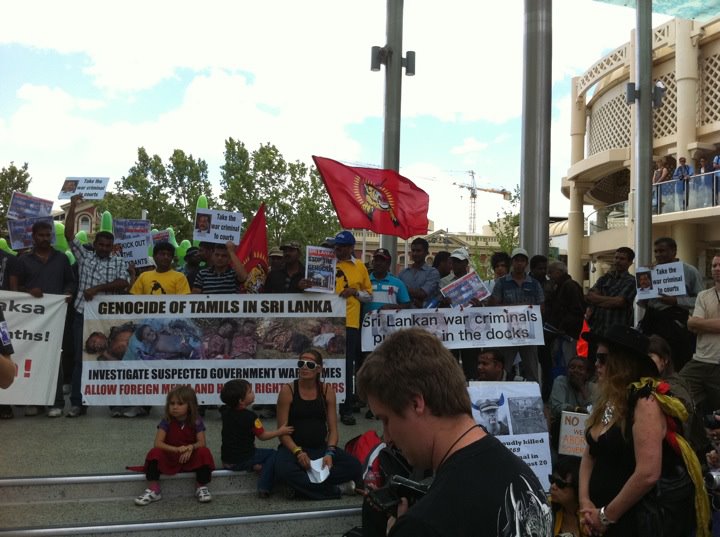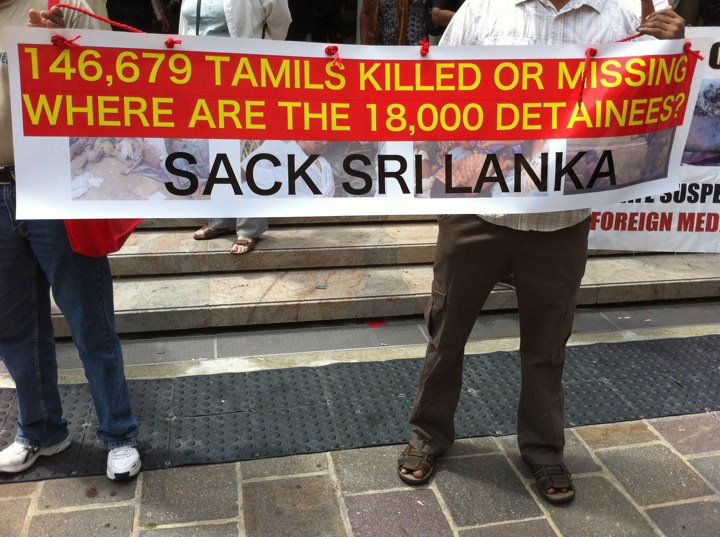Paul Dewar, a Member of Parliament and candidate for the leadership of the New Democratic Party in Canada, has released a statement urging the Commonwealth to hold Sri Lanka to account for alleged war crimes.
He joined Canadian Prime Minister Stephen Harper in his call for an independent investigation into war crimes in Sri Lanka and called to boycott the next CHOGM unless Sri Lanka had made progress on human rights.
In his statement, Dewar said,
“The Commonwealth must not condone impunity. Once again, I call on the government of Sri Lanka to agree to a full, independent inquiry into the allegations of war crimes committed by all sides during and after the Sri Lankan conflict.
The Government of Canada must take leadership and bring the Commonwealth countries together to collectively hold the government of Sri Lanka to account.
The next Commonwealth meeting should not take place in Sri Lanka unless the Sri Lankan government has accepted an independent investigation of alleged war crimes and committed to a true reconciliation process, beginning with justice for victims of violence."
His call comes as Canadian-Tamil MP Radhika Sitsabaiesan raised the issue of Sri Lanka in the Canadian Parliament, calling for Canada to take more “concrete action” to hold Sri Lanka accountable for human rights violations and said,
“We need action now, not just words.”
Speaking in Parliament on Wednesday, Deepak Obhrai, Parliamentary Secretary to the Minister of Foreign Affairs replied,
"Canada is very concerned that the underlying sources of conflict are not being addressed and we are of the view that a political solution, including the devolution of power, is a critical component of sustainable peace in Sri Lanka.
Canada is of the view that the government of Sri Lanka must show tangible progress in the handling of political reconciliation and seriously address the credible allegations of violations of international humanitarian law and international human rights law as reported by the UN Secretary-General's panel of experts.
We have made it very clear to the Sri Lankan government that we expect to see some tangible progress in Sri Lanka in terms of human rights, political reconciliation and accountability. The Prime Minister has made it clear that if he does not see any tangible evidence moving toward that direction, then he will not attend the next Commonwealth conference to be held in Sri Lanka."
See our earlier posts:
'Canadian Peace Alliance supports Tamil nation’s self-determination' (Oct 2011)
'Sri Lanka will be discussed at Commonwealth - Canada' (Oct 2011)


